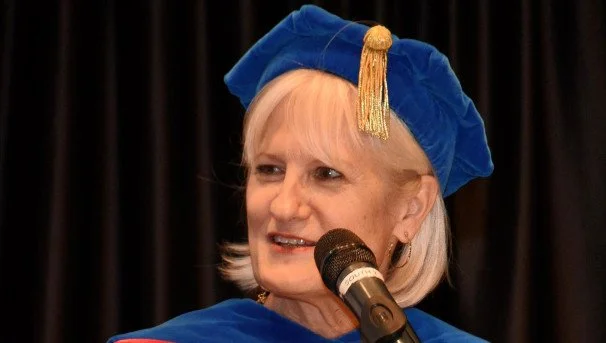They will never understand how much I love them: Jacob Crouch speaks to the heart of every parent. “God has now given me five children, and with each new birth, a strange thing happens.
Jesus said more about hell than anyone in the Bible: Speaking of love, how do we square Jesus’ love with this hard truth?
The list on the door: Andrea Sanborn asks us to consider eternity
Nature inFocus photography festival winners: India’s annual photography festival has some amazing shots.
The Gospel of Self-Forgiveness
She sits in my office, tears running down her face. Two years ago her mother died in hospice while she lay asleep at home. She was trying to get a decent night’s rest after days spent at her mother’s side. “I just can’t forgive myself. I let her die alone. I knew I should have been there, but I was selfish. I can never forgive myself for that.”
I’ve heard dozens share similar confessions with me. Does this resonate with you? What guilt do you bear? What burdens are you carrying because you can’t forgive yourself?
This Week's Recommendations
Nietzsche was Right: In a similar vein as my post on Tuesday, Tim Keller reviews Tom Holland’s (not the actor) book on how Christianity revolution changed the world. Keller concludes, “In no way does [Holland] let the church off the hook for its innumerable failures. Nor will he let secular people live with the illusion that their values are just self-evident, the result of reason and scientific investigation.”
What Has Been Most Helpful in Your Marriage? Ed Welch answers this question with wisdom.
Beware of Pride: A Cautionary Tale: Lee Hutchings tells the story of how pride led William Henry Harrison to have the shortest tenure of any US President. He explains, “Such a tragic and ironic ending to an otherwise tenacious life is compounded by the fact that Harrison died, in all likelihood, of his own vanity and pride.”
Love is a Skill: Seth Lewis comments, “It’s interesting that Jesus never mentioned how the Good Samaritan felt about the man on the road. He only tells us what he did for him. Evidently, Jesus does not consider love to be primarily about how we feel, but more importantly about what we do.”
Can Cancer be God’s Servant? Randy Alcorn considers hard truths in the face of his wife’s recent death. “When our ministry posted Nanci’s words, “My cancer is God’s servant,” someone responded, “WHAT? God does NOT give people cancer. Jesus bore our sicknesses and carried our pains on the cross.”
This Week's Recommendations
1. How to Meet God at Your Lowest Point: Jane Marczewski guest posts over on Ann Voskamp’s blog. She has cancer and has been given only a 2% chance of survival. Jane recently auditioned on America’s Got Talent and received the golden buzzer. You’ll want to read her post and then watch her memorable performance. She writes, “I have heard it said that some people can’t see God because they won’t look low enough, and it’s true. Look lower.”
2. Not this Man, but Barabbas! Keith Mathison nails it here, “I hear and read Christians almost every day saying that their biggest concern is the direction in which the United States is headed. Or they are most concerned about the collapse of Western civilization. Granted, many people are concerned about these things because of their love for their children or grandchildren… The problem occurs when our main concern is fundamentally a political concern.”
3. 5 Cultural Shifts We Need to Know to Reach Our Neighbors: Mark Clark begins with this truth, “The highest good is now individual freedom and happiness.” All five are helpful in considering how to reach our neighbors with the gospel.
4. Romanticizing Death: A fellow Tucson pastor, Rod Hugen reminds us that to understand the power of Jesus conquering death we must come face to face with the ugliness of death. He concludes, “I live in the time when death is still the enemy, but with the sure knowledge that death is defeated and will one day be no more. It is an exhilarating time, freeing me to seize life and to take joy in the journey, knowing that Christ’s resurrection is a reality. Death defeated is far superior to death romanticized.”
5. PT Barnum’s 10 Most Famous Human “Freak” Show Attractions: If you’ve seen The Greatest Showman you’ll appreciate how this video humanizes the various people that Barnum promoted (and often exploited) in his show.
This Week's Recommendations
1. Growing My Faith in the Face of Death: Tim Keller reflects on his spiritual journey through his diagnosis of pancreatic cancer, “This change was not an overnight revolution. As God’s reality dawns more on my heart, slowly and painfully and through many tears, the simplest pleasures of this world have become sources of daily happiness. It is only as I have become, for lack of a better term, more heavenly minded that I can see the material world for the astonishingly good divine gift that it is.”
2. Is the World Getting Better or Worse? Yes. Colin Smith explains this question is at the heart of the parable of the weeds. He says, “You look at the weeds of evil in the world and you wonder: How can there be a God who is good when his world is in a mess like this? Is God really in control? Can I actually believe in a sovereign God in a world like this?”
3. Four Evangelical Approaches to Race, Politics, and Gender: I found this way of breaking down contemporary Christian perspectives on these hot button issues by Kevin DeYoung illuminating.
4. Four Barriers That Keep You From Being a Multi-Directional Leader: Trevin Wax’s thoughts on what he calls “multi-directional leadership” are significant for any leader today. He explains the difference between this and “one-directional leaders”: “One-directional leaders are skillful in spotting and thwarting threats to the sheep that come from a single direction of the field. But because they focus on fighting battles on one front, they leave the flock vulnerable to problems from other sides.”
5. 600 Drones Recreate VanGogh’s Famous Paintings: This is pretty fun.
This Week's Recommendations
1. The COVID Vaccine Has 666 Written All Over It: But That Doesn’t Matter: Matthew Halsted provides helpful clarification for the context of the Mark of the Beast. He begins with the question, “[I]sn’t there enough evidence that the vaccine is the “number” of the beast, including a bill currently before the House of Representatives (6666) and the very letters “C-O-R-O-N-A” themselves?”
2. Why is There Only One Way to Heaven? This is such a great article by Tim Challies. He begins, “It is an audacious claim of the Christian faith that there is only one way to heaven. “All have sinned and fall short of the glory of God,” we believe. Not most, not some, but all. Since all of us have sinned, all of us are lost and in need of saving.”
3. The Teachable Will Lap the Gifted: Oh my are AW Workman’s words true! He shares, “The unassuming, the unpretentious, the ones who didn’t have to lead, but who eventually led anyway because of their steady faithfulness and consistency – these friends are the ones who quietly got started in ministry, have so far persevered, and are now harvesting righteousness (James 3:18).”
4. Grief Should Always Make Us Better: Tim Challies lost his son to unforeseen and unknown medical issues late last year. He’s had a number of powerful posts on the experience. If you like this one, you should read his other posts. Challies begins, “Death is the great interrupter. Death is the great interrupter because, far more often than not, it strikes when it’s least expected. When death comes it invariably interrupts plans, dreams, projects, goals.”
5. 11 Incredible Species of Insect in Flight: Most of these look fake. Remarkable!
This Week's Recommendations
1. The Funeral As We Know it is Becoming a Relic: Karen Heller reports that just as we are on the verge of a death boom, the rules of funerals are undergoing significant changes. She shares, " The movement will only accelerate as the nation approaches a historic spike in deaths. Baby boomers, despite strenuous efforts to stall the aging process, are not getting any younger. In 2030, people over 65 will outnumber children, and by 2037, 3.6 million people are projected to die in the United States, according to the Census Bureau, 1 million more than in 2015, which is projected to outpace the growth of the overall population."
2. Be Slow to Assume: Being slow to anger begins with being slow to assume, Lara D'Entremont suggests: " Maybe this is what Peter meant by, “Love covers a multitude of sins,” (1 Peter 4:8). In my desire to assume the best of another, the small sins of another towards me are overlooked and covered, rather than racked up to be something greater than they were. Let’s toss poor assumptions, give some charity, stretch ourselves a little, and put grace on display."
3. Why We Need to Stop Saying, "Sorry for Your Loss": This is written from a secular psychological perspective from Ed Preston. Preston is correct though, and I would suggest that the reasons as Christians are even stronger. He suggests, " Perhaps it’s because of our cultural death phobia, and the way it pathologizes everything related to sadness. If we’re not better at dealing with grief, then it’s because we’ve never been taught better. Unfortunately, that leaves the majority of people with only one stock phrase in their repertoire, “I’m sorry for your loss.”" He also includes some practical advice for what you can say.
4. How to Get Your Church to Engage Scripture More: JR Briggs offers seven great ideas including, " Read a passage, and then ask people to write out 10-to-15 questions about the passage on a piece of paper. Why did the woman ask that of Jesus? What was running through Abraham’s mind when he was walking up the mountain to sacrifice Isaac? Allow people to interact with the text by courageously wrestling with tough questions."
5. 1 in 10 Young Protestants Have Left Church Over Abuse: Kate Shellnut reports on a recent Lifeway Research survey that contains sobering information. She concludes with practical changes churches can consider including, " Assess your church culture first and make needed changes: Do your current members experience safety and freedom in sharing their own stories of suffering?"
This Week's Recommendations
1. How 32 African Slaves Turned Into Millions: This year we commemorate the 400th anniversary of the tragic start of the slave trade to the Americas. This powerful info-graphic rich article shows how 32 slaves ballooned into millions.
2. Why People Don't Think You Appreciate Them Even When You Do: Suzanne Vickberg with helpful advice for any leader. She begins by quoting Gladys Bronwyn Stern: "Silent gratitude isn't much use to anyone."
3. Why Calvinists Should Be the Gentlest: John Newton, in his letter to fellow Christians exhorts gentleness and cautions a lack of gentleness, " If you write with a desire of being an instrument of correcting mistakes, you will of course be cautious of laying stumbling blocks in the way of the blind or of using any expressions that may exasperate their passions, confirm them in their principles, and thereby make their conviction, humanly speaking, more impracticable."
4. Eternity and Mortality: Jennie Cesario with a beautiful reflection on how a scrape with death shaped her perspective about herself, God, and parenting.
5. The Ugly History of Mass Incarceration: The United States imprisons more people than any country in the world. And with a disproportionate number of those inmates being black, it is an issue fraught with difficulty. As a former Detention Officer, the complicated history of and solution for our incarceration problem hits close to home.
Christmas Eve Recommendations
Merry Christmas,
As you celebrate your Christmas, here are some bonus recommendations for you.
May the joy and hope of Immanuel reign in your home and in your hearts,
John
1. Did the Gospels Borrow From Pagan Myths? Timothy Paul Jones examines this claim: “In the simplest possible terms, here’s what these critics contend: The most marvelous claims in the Gospels—a miraculous birth, for example, as well as the idea of a deity who dies and rises again—are paralleled in pagan religions that predate Christianity; therefore, early Christians must have fabricated these miracles based on their knowledge of pre-Christian religions.
2. The Lord Gave Us A Casket for Christmas: Erik Naykalyk shares his heartbreaking story, “Exactly three weeks to Christmas Day, God decreed to take my home ad flip it upside-down. Twelve days before Christmas, we lowered my son’s casket into the cold, hard, December ground. And I’ve never been looking forward to Christmas more in my entire life. No, seriously. Never.”
3. A Letter to the Depressed Christian at Christmas: David Murray reflects, “Depression is tough at the best of times. Perhaps it’s the best of times, such as holiday times, when it’s especially tough. The thought of mixing with happy people fills you with dread. The thought of remembering lost loved ones fills you with gloom. How can people be so happy when you are so sad? How can people celebrate when you are in mourning? It jars your soul and scrapes your tender wounds, doesn’t it?”
4. 200 Years of Silent Night: Keith and Kristyn Getty consider the power and beauty of one of the best and longest sung Christmas carols: “God’s heavenly peace is still so evident in these enduring lyrics and chords, its soothing effect one of the marvels of our modern holiday traditions—like a distant whisper somehow soft enough, yet also loud enough, to reach us in the deafening noise.”
This Week's Recommendations
1. Am I Addicted to My Smartphone? A sobering quiz for a pervasive issue.
2. Death is a Vapor: Brian Sauve begins, "Nearly 60,000,000 people die every year on planet Earth. This is one of the things that makes human beings so bewildering. I'm not talking about the fact that people die, but the fact that they take so little time to consider death."
3. Why Christians Shouldn't Cuss: Ben Archer, considers the reasons "The truth is that a particular word has no inherent sinfulness beyond that which a culture or community assigns to it, nor can it be intrinsically objectionable... This is why Christians don’t cuss: we cherish the purpose for which God gave words."
4. How to Remember What You Read: David Qaoud's recommendations are great. I also would add that writing reviews on books is a huge aid in memory. His second point is: "I read actively, not passively. I have a highlighter and pen in hand. I highlight what sticks out to me. After reading something particularly inspiring, I’ll stop, close my eyes, and repeat what just inspired me."
5. Why is Water Slippery? Kids ask the best questions and in this series scientists take on surprisingly complex answers to questions kids ask. Part of the surprise to this answer is how surprisingly strange water is, "How weird is water? Unlike most liquids, it is densest not at its freezing point, but at just a few degrees warmer... Water is safe for us to drink, but also so chemically reactive that it can’t be used to lubricate things like engines because of the damage it will cause inside the machine... Ball said that it’s even weird that water is liquid at all, considering that when the other elements most similar to oxygen link up with hydrogen what they form is a gas."














